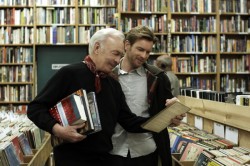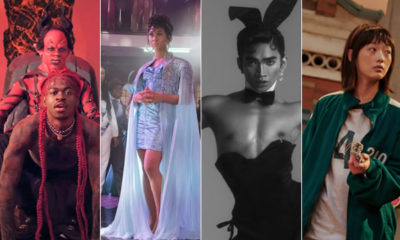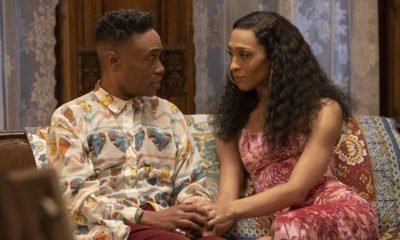Arts & Entertainment
Stunted emotions
‘Beginners’ finds father and son stumbling in life and love
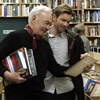
“Beginners” will stir your emotions.
Told in flashback, the script for the recently released film is loosely based on the story of the relationship between writer/director Mike Mills and his parents. In his sophomore directorial effort in feature films, Mills weaves the tale of Oliver (Ewan McGregor) and his new love Anna (Mélanie Laurent) with the tale of his father Hal (Christopher Plummer) coming out during his twilight years.
It’s obvious from the start that this is a personal and real story. Mills does an extremely effective job in telling an emotional tale without treating the audience as if they are unable to relate. The result is a wonderful film about the complexity of life and interpersonal relationships.
After 44 years of marriage, Hal’s wife dies and he is diagnosed with terminal lung cancer. After sharing the recent diagnosis with his son Oliver, Hal also announces that he will be living the remainder of his life fully out as a gay man. The result is a balancing of perspectives between father and son. We soon witness Hal enjoying his “gayness,” as opposed to what he describes as living “theoretically gay.” Hal places a personal ad and enjoys house music for the first time. He loves to shop and host theme parties with his growing circle of friends. He is indeed relishing in his new-found freedom and joy away from the coldness and sadness of an unemotional marriage.
Not yet sharing the wisdom of his father, it seems Oliver will need to catch up.
The story drives home how much our own personal relationships can be affected by the dynamics and connections that we have with our parents. As a young child, Oliver’s mother struggles with an emotionless marriage and encourages her son to confront frustration by going into his room and screaming out loud in order to bring about “catharsis.” While some may argue the power of a good yell, the scene is an effective way of illustrating what can result in a relationship based on secrets and poor communication. Her approach to managing her marriage was a sign of the times, yes, but the actions obviously carried on into her own son’s relationship.
Hal imparts periodic dating and personal advice to his son. The advice seems to fall on pessimistic ears. It’s clear Oliver never witnessed any sign of true love between his parents. The ensuing personal struggle for Oliver to embrace his own happiness is the story that makes up the majority of the film. Oliver is having a hard time being social and is focused on sadness as a concept.
Oliver meets a girl named Anna and we witness them both struggle through the start of the relationship. Whether we like it or not, the model that our parent’s provided is one that we so often draw from when managing our own relationships. In two particularly moving scenes, Anna and Oliver struggle with communicating and find themselves coping with the awkwardness through non-traditional means. The couple write on a pad due to a case of laryngitis and role-play over the phone while in the same hotel room.
They want to connect on a deeper level than their respective parents ever could.
Oliver narrates the story for us and moves the movie along at a nice pace. Drawing on historical references in gay America, the story’s poignancy is driven home as the audience is reminded at how far the gay movement has progressed in the last 50 years. Interestingly, there is a brief sequence where The Mattachine Society, an early gay rights group, is referenced. The Washington Chapter of the Society was instrumental in starting the Blade.
While the historical references are interesting and provide context for Hal’s unabashed excitement with his life out of the closet, the real power of this movies lies with the characters. The movie’s script is creative in bringing about character development and the audience experiences understanding and a closeness with each of the characters as the movie progresses.
Through the flashbacks, we continue to see Hal enjoying his final days. Perhaps fueled by the knowledge that his time is limited, Hal even pursues love with as equal abandon as shopping for the latest fashions in neckwear. He continues to surprise his son’s preconceived notions of his father by dating and eventually falling in love with a much younger man. Hal continues to demonstrate to his son how much he embraces and loves himself in his gayness. A heartwarming scene shows an exchange between Hal and his hospice nurse. After complementing the male nurse on his hair, the nurse brings out his mousse and helps Hal to do his hair in the same way, providing the movie with one of its most poignant scenes.
Despite all of the angst, there are sprinkles of comic relief. Oliver eventually adopts his father’s dog, Arthur. Challenging the audience’s ability to suspend its disbelief while enjoying the film, Mills gives the audience the ability to read the Arthur the dog’s thoughts through the use of subtitles. The audience sees Arthur telepathically communicate to Oliver in an effort to encourage him to progress in the relationship with Anna: “Tell her the darkness is about to drown us unless something drastic happens soon.”
“Beginners” is about new life and new love. It’s about embracing life no matter what stage you are in. The emotions can be daunting, but the thrill is in the process, not an end result.
“Beginners” is playing at Landmarks E Street Cinema and Bethesda Row Cinema.
Sports
US wins Olympic gold medal in women’s hockey
Team captain Hilary Knight proposed to girlfriend on Wednesday

The U.S. women’s hockey team on Thursday won a gold medal at the Milan Cortina Winter Olympics.
Team USA defeated Canada 2-1 in overtime. The game took place a day after Team USA captain Hilary Knight proposed to her girlfriend, Brittany Bowe, an Olympic speed skater.
Cayla Barnes and Alex Carpenter — Knight’s teammates — are also LGBTQ. They are among the more than 40 openly LGBTQ athletes who are competing in the games.
The Olympics will end on Sunday.
Movies
Radical reframing highlights the ‘Wuthering’ highs and lows of a classic
Emerald Fennell’s cinematic vision elicits strong reactions

If you’re a fan of “Wuthering Heights” — Emily Brontë’s oft-filmed 1847 novel about a doomed romance on the Yorkshire moors — it’s a given you’re going to have opinions about any new adaptation that comes along, but in the case of filmmaker Emerald Fennell’s new cinematic vision of this venerable classic, they’re probably going to be strong ones.
It’s nothing new, really. Brontë’s book has elicited controversy since its first publication, when it sparked outrage among Victorian readers over its tragic tale of thwarted lovers locked into an obsessive quest for revenge against each other, and has continued to shock generations of readers with its depictions of emotional cruelty and violent abuse, its dysfunctional relationships, and its grim portrait of a deeply-embedded class structure which perpetuates misery at every level of the social hierarchy.
It’s no wonder, then, that Fennell’s adaptation — a true “fangirl” appreciation project distinguished by the radical sensibilities which the third-time director brings to the mix — has become a flash point for social commentators whose main exposure to the tale has been flavored by decades of watered-down, romanticized “reinventions,” almost all of which omit large portions of the novel to selectively shape what’s left into a period tearjerker about star-crossed love, often distancing themselves from the raw emotional core of the story by adhering to generic tropes of “gothic romance” and rarely doing justice to the complexity of its characters — or, for that matter, its author’s deeper intentions.
Fennell’s version doesn’t exactly break that pattern; she, too, elides much of the novel’s sprawling plot to focus on the twisted entanglement between Catherine Earnshaw (Margot Robbie), daughter of the now-impoverished master of the titular estate (Martin Clunes), and Heathcliff (Jacob Elordi), a lowborn child of unknown background origin that has been “adopted” by her father as a servant in the household. Both subjected to the whims of the elder Earnshaw’s violent temper, they form a bond of mutual support in childhood which evolves, as they come of age, into something more; yet regardless of her feelings for him, Cathy — whose future status and security are at risk — chooses to marry Edgar Linton (Shazad Latif), the financially secure new owner of a neighboring estate. Heathcliff, devastated by her betrayal, leaves for parts unknown, only to return a few years later with a mysteriously-obtained fortune. Imposing himself into Cathy’s comfortable-but-joyless matrimony, he rekindles their now-forbidden passion and they become entwined in a torrid affair — even as he openly courts Linton’s naive ward Isabella (Alison Oliver) and plots to destroy the entire household from within. One might almost say that these two are the poster couple for the phrase “it’s complicated.” and it’s probably needless to say things don’t go well for anybody involved.
While there is more than enough material in “Wuthering Heights” that might easily be labeled as “problematic” in our contemporary judgments — like the fact that it’s a love story between two childhood friends, essentially raised as siblings, which becomes codependent and poisons every other relationship in their lives — the controversy over Fennell’s version has coalesced less around the content than her casting choices. When the project was announced, she drew criticism over the decision to cast Robbie (who also produced the film) opposite the younger Elordi. In the end, the casting works — though the age gap might be mildly distracting for some, both actors deliver superb performances, and the chemistry they exude soon renders it irrelevant.
Another controversy, however, is less easily dispelled. Though we never learn his true ethnic background, Brontë’s original text describes Heathcliff as having the appearance of “a dark-skinned gipsy” with “black fire” in his eyes; the character has typically been played by distinctly “Anglo” men, and consequently, many modern observers have expressed disappointment (and in some cases, full-blown outrage) over Fennel’s choice to use Elordi instead of putting an actor of color for the part, especially given the contemporary filter which she clearly chose for her interpretation for the novel.
In fact, it’s that modernized perspective — a view of history informed by social criticism, economic politics, feminist insight, and a sexual candor that would have shocked the prim Victorian readers of Brontë’s novel — that turns Fennell’s visually striking adaptation into more than just a comfortably romanticized period costume drama. From her very opening scene — a public hanging in the village where the death throes of the dangling body elicit lurid glee from the eagerly-gathered crowd — she makes it oppressively clear that the 18th-century was not a pleasant time to live; the brutality of the era is a primal force in her vision of the story, from the harrowing abuse that forges its lovers’ codependent bond, to the rigidly maintained class structure that compels even those in the higher echelons — especially women — into a kind of slavery to the system, to the inequities that fuel disloyalty among the vulnerable simply to preserve their own tenuous place in the hierarchy. It’s a battle for survival, if not of the fittest then of the most ruthless.
At the same time, she applies a distinctly 21st-century attitude of “sex-positivity” to evoke the appeal of carnality, not just for its own sake but as a taste of freedom; she even uses it to reframe Heathcliff’s cruel torment of Isabella by implying a consensual dom/sub relationship between them, offering a fragment of agency to a character typically relegated to the role of victim. Most crucially, of course, it permits Fennell to openly depict the sexuality of Cathy and Heathcliff as an experience of transgressive joy — albeit a tormented one — made perhaps even more irresistible (for them and for us) by the sense of rebellion that comes along with it.
Finally, while this “Wuthering Heights” may not have been the one to finally allow Heathcliff’s ambiguous racial identity to come to the forefront, Fennell does employ some “color-blind” casting — Latif is mixed-race (white and Pakistani) and Hong Chau, understated but profound in the crucial role of Nelly, Cathy’s longtime “paid companion,” is of Vietnamese descent — to illuminate the added pressures of being an “other” in a world weighted in favor of sameness.
Does all this contemporary hindsight into the fabric of Brontë’s epic novel make for a quintessential “Wuthering Heights?” Even allowing that such a thing were possible, probably not. While it presents a stylishly crafted and thrillingly cinematic take on this complex classic, richly enhanced by a superb and adventurous cast, it’s not likely to satisfy anyone looking for a faithful rendition, nor does it reveal a new angle from which the “romance” at its center looks anything other than toxic — indeed, it almost fetishizes the dysfunction. Even without the thorny debate around Heathcliff’s racial identity, there’s plenty here to prompt purists and revisionists alike to find fault with Fennell’s approach.
Yet for those looking for a new window into to this perennial classic, and who are comfortable with the radical flourish for which Fennell is already known, it’s an engrossing and intellectually stimulating exploration of this iconic story in a way that exchanges comfortable familiarity for unpredictable chaos — and for cinema fans, that’s more than enough reason to give “Wuthering Heights” a chance.
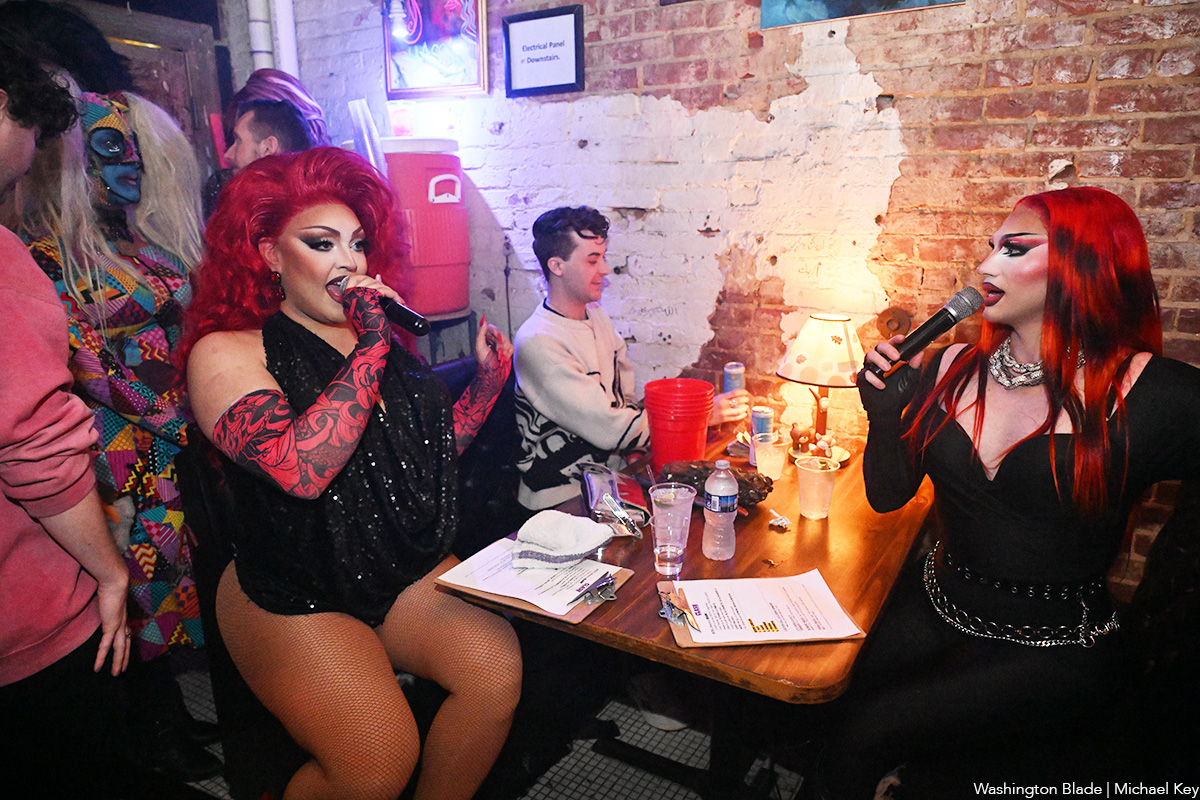
Crimsyn and Tatianna hosted the new weekly drag show Clash at Trade (1410 14th Street, N.W.) on Feb. 14, 2026. Performers included Aave, Crimsyn, Desiree Dik, and Tatianna.
(Washington Blade photos by Michael Key)
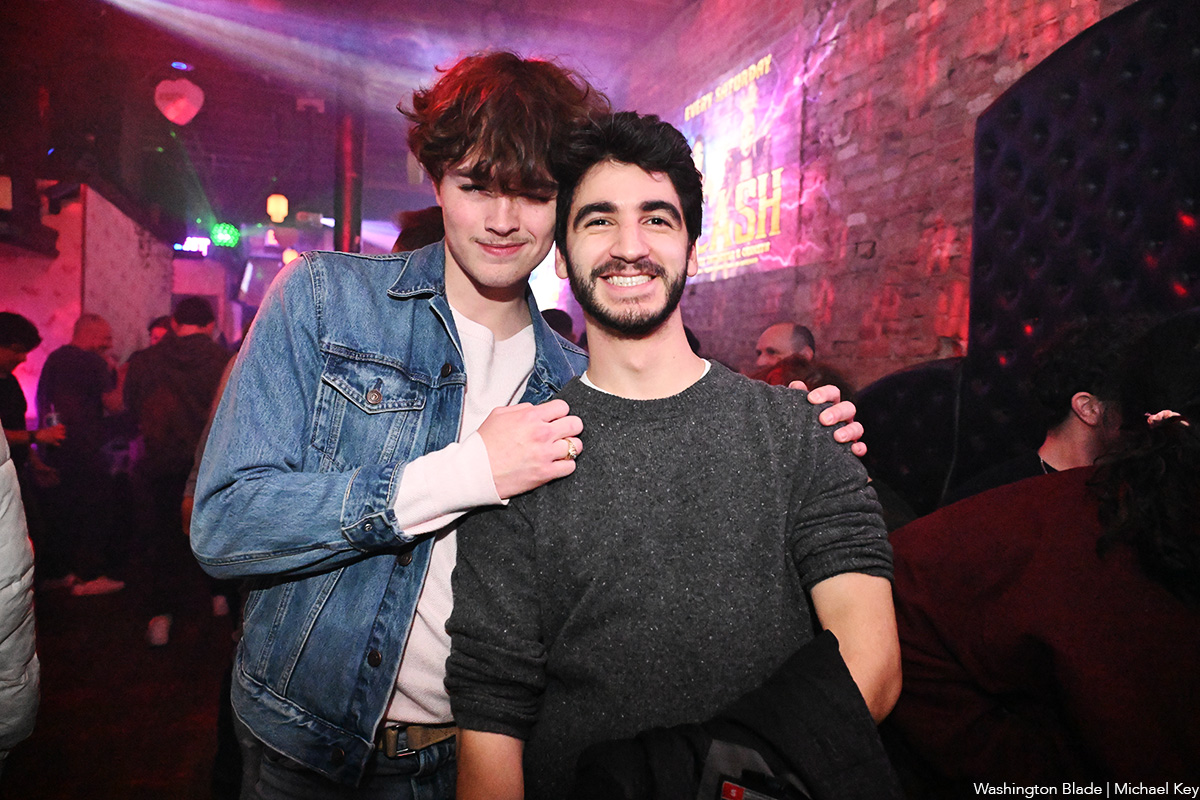
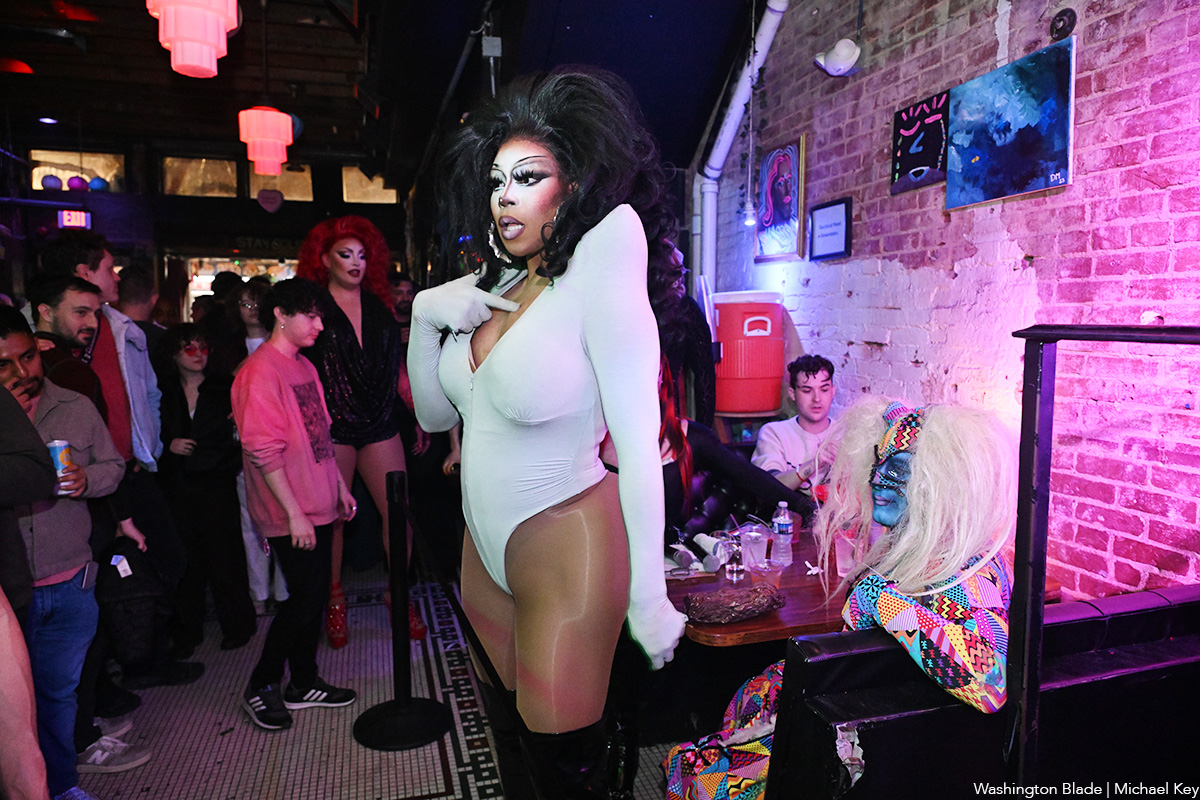
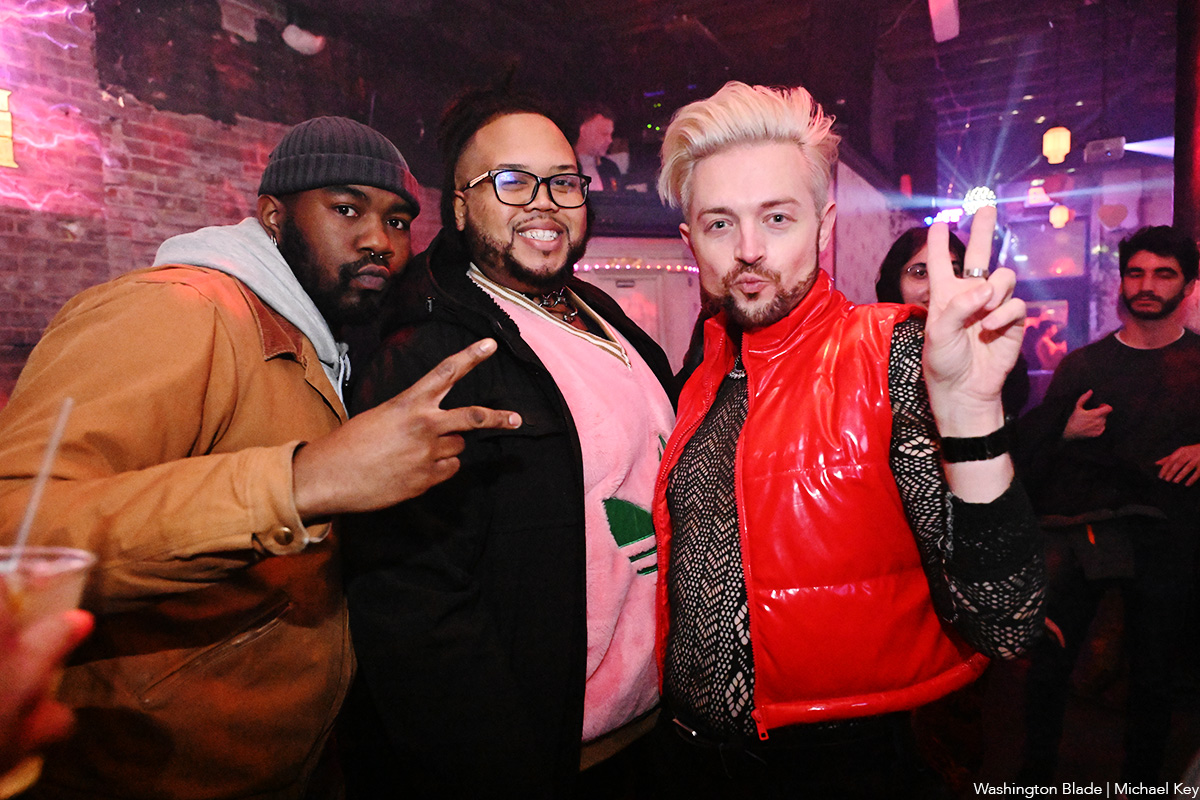
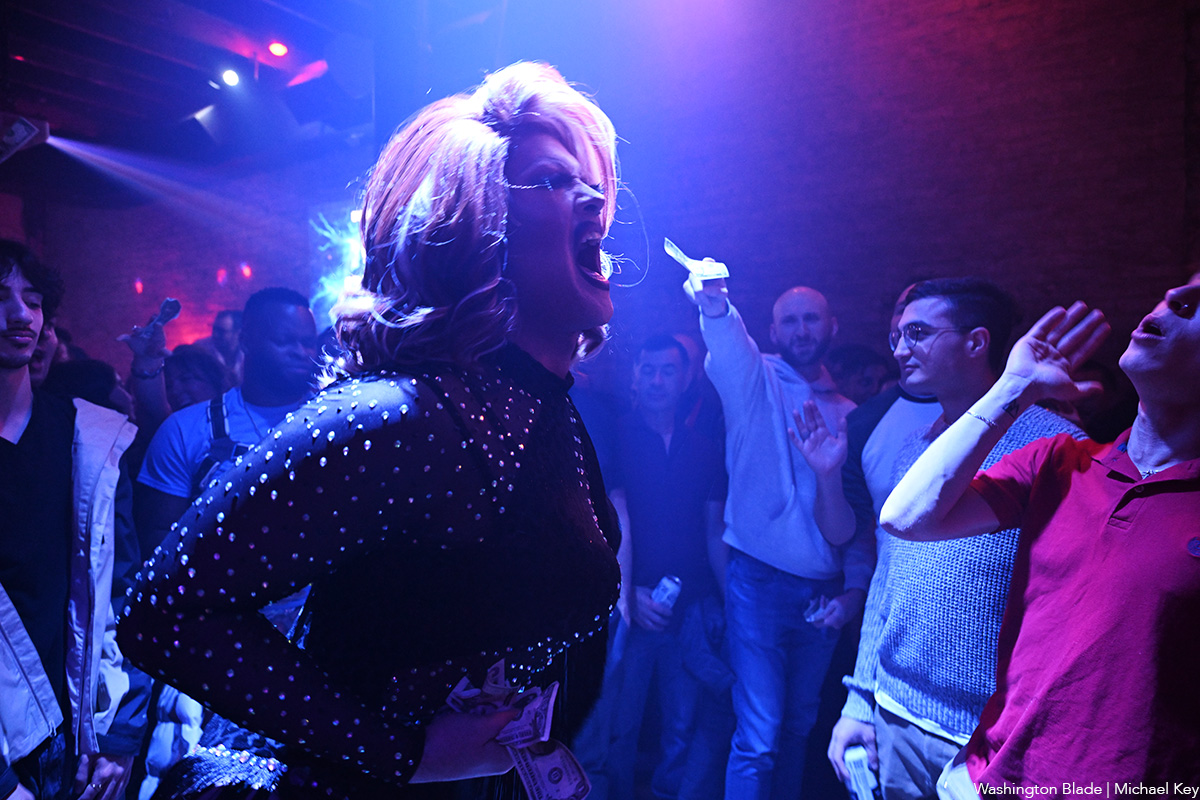
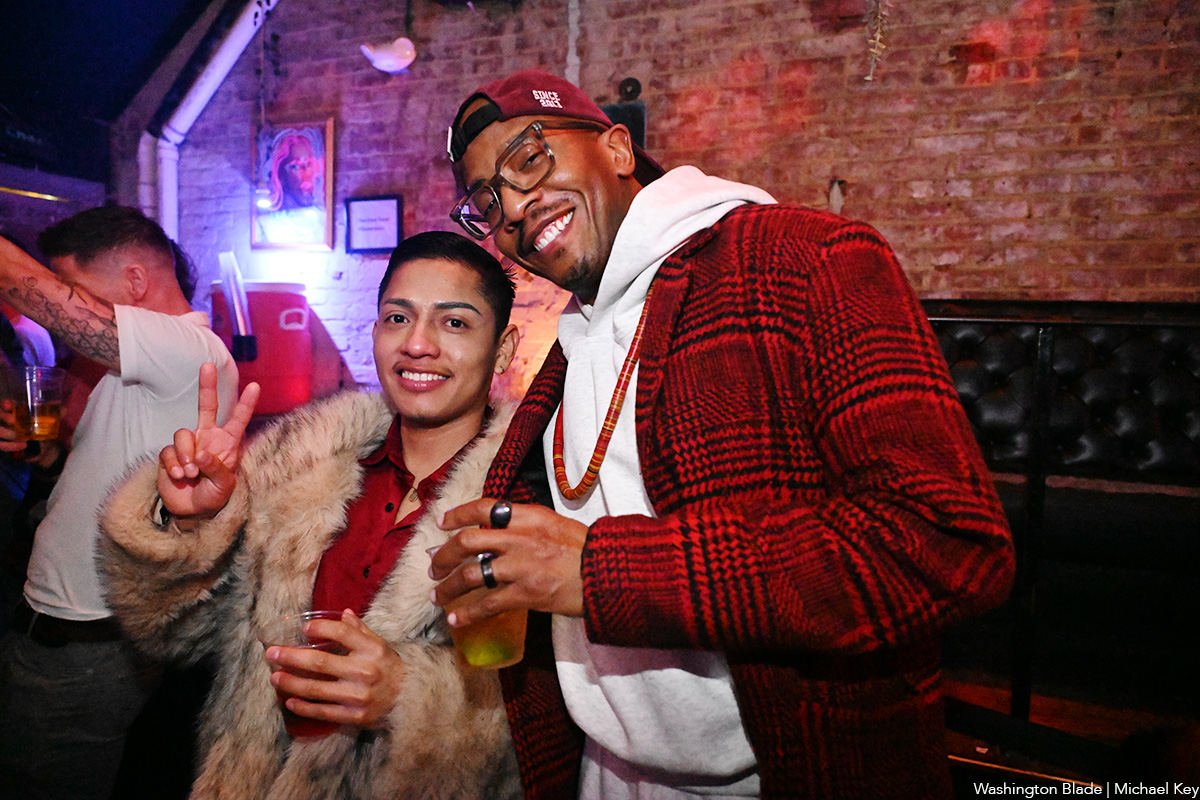
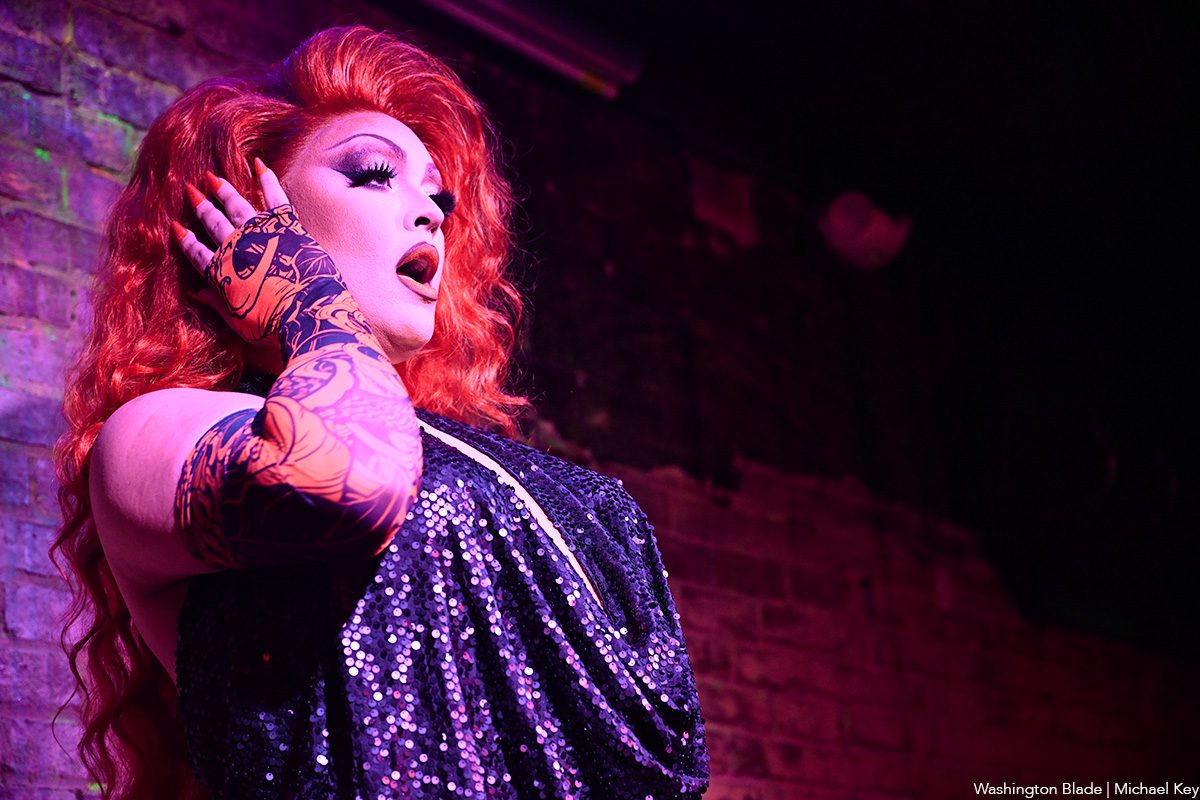
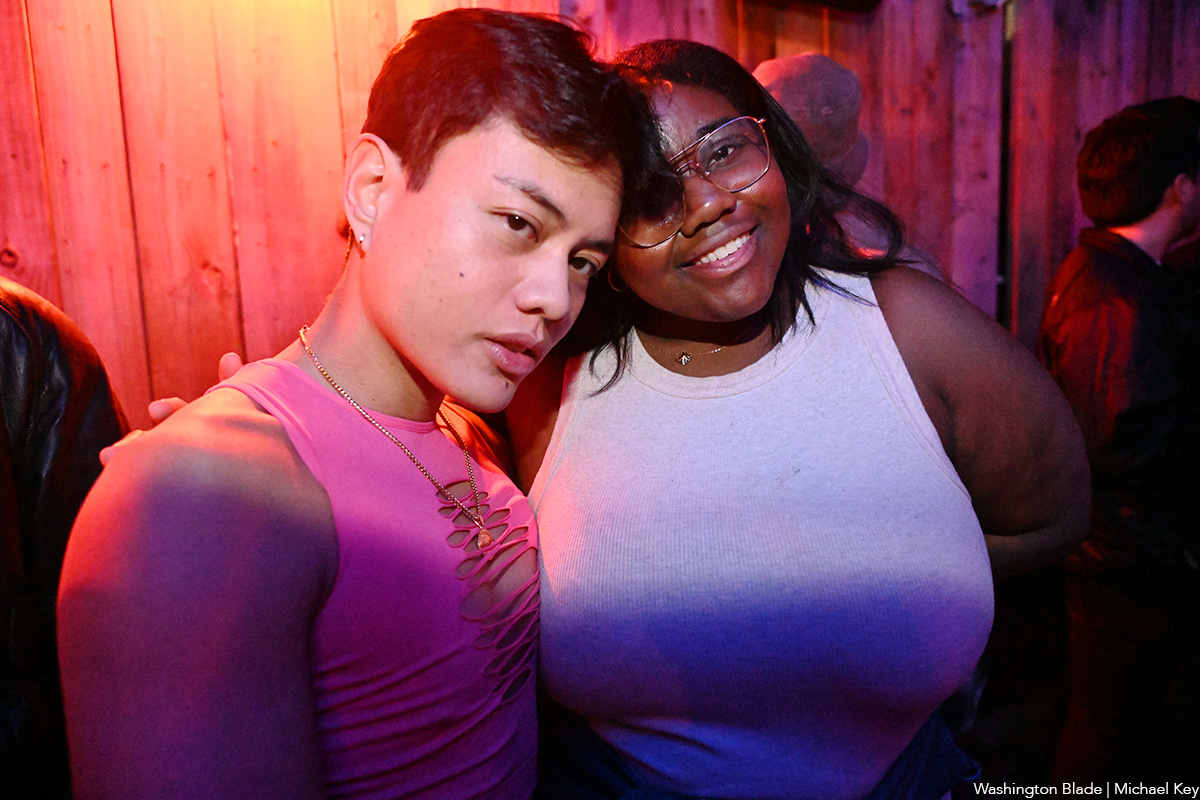
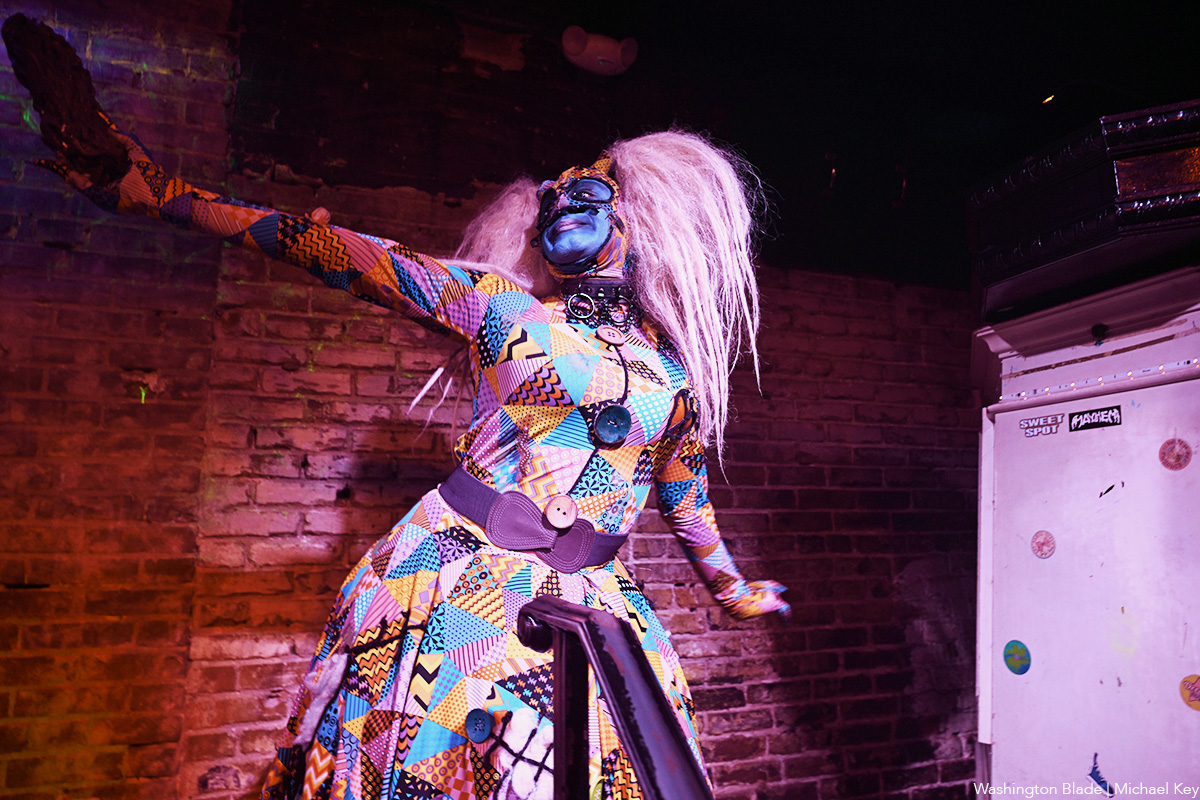
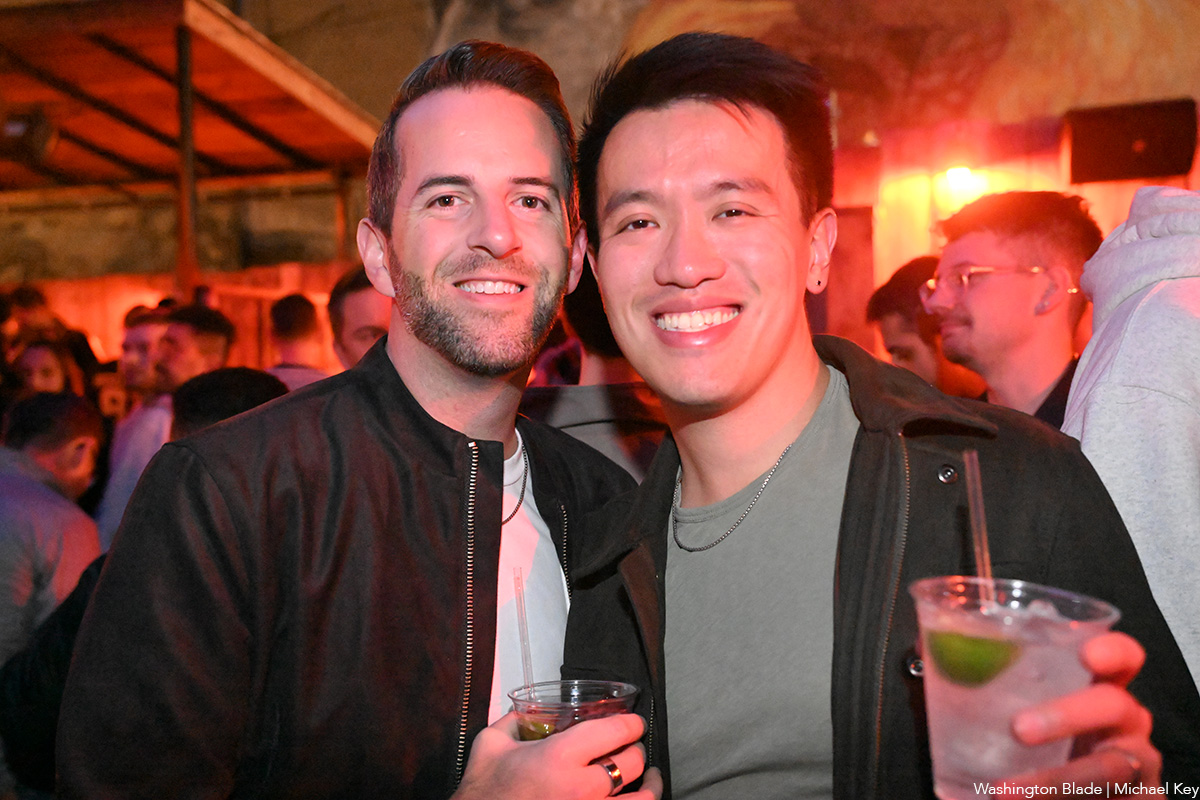
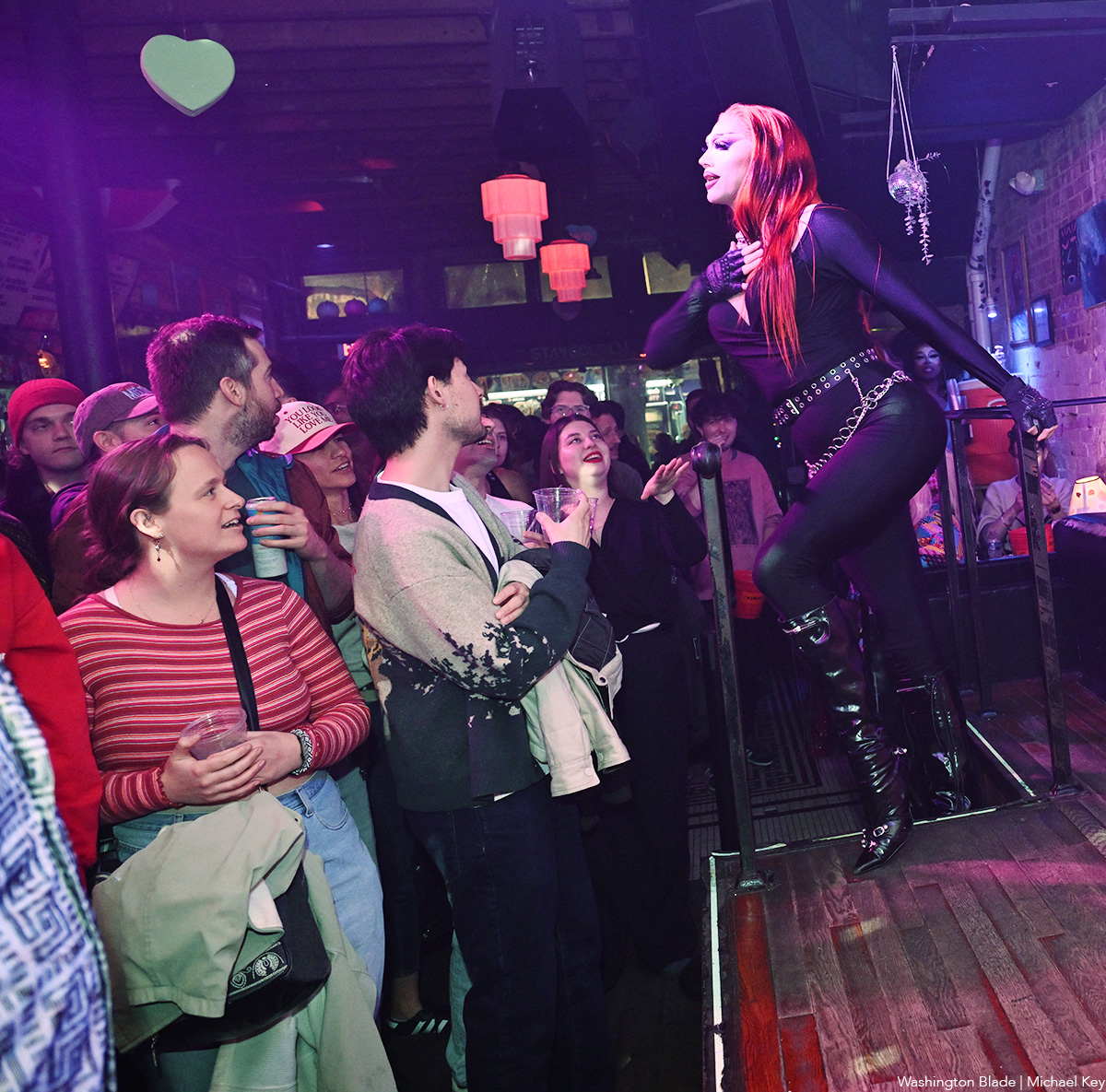
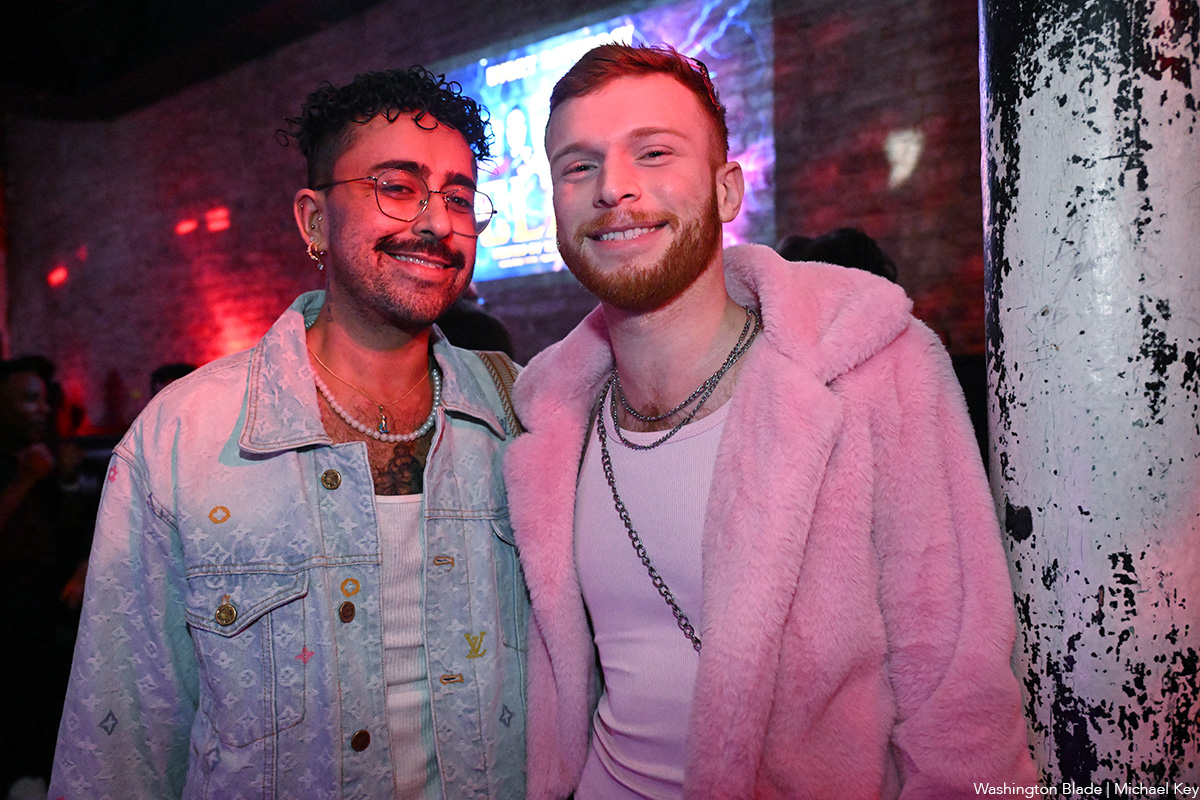
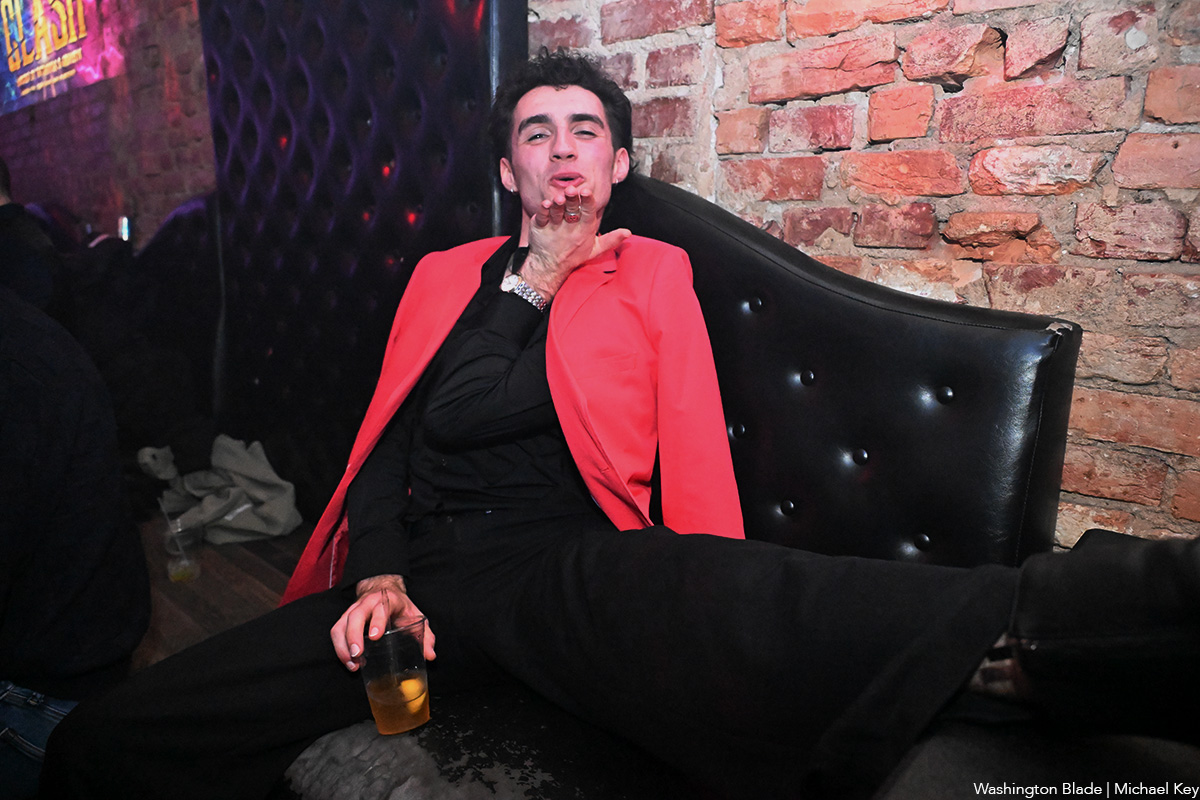
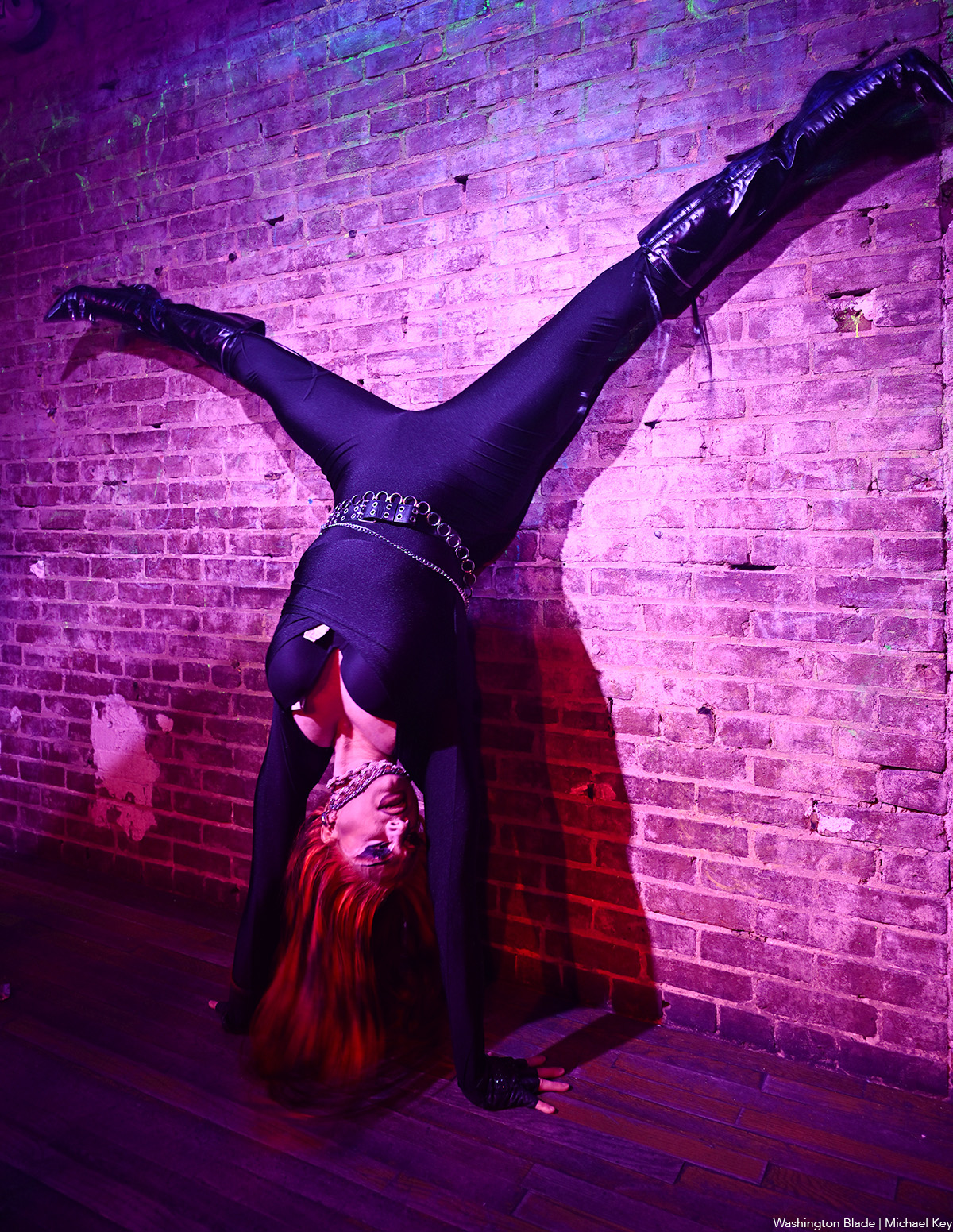
-

 Baltimore3 days ago
Baltimore3 days ago‘Heated Rivalry’ fandom exposes LGBTQ divide in Baltimore
-

 Real Estate3 days ago
Real Estate3 days agoHome is where the heart is
-

 District of Columbia3 days ago
District of Columbia3 days agoDeon Jones speaks about D.C. Department of Corrections bias lawsuit settlement
-

 European Union3 days ago
European Union3 days agoEuropean Parliament resolution backs ‘full recognition of trans women as women’

